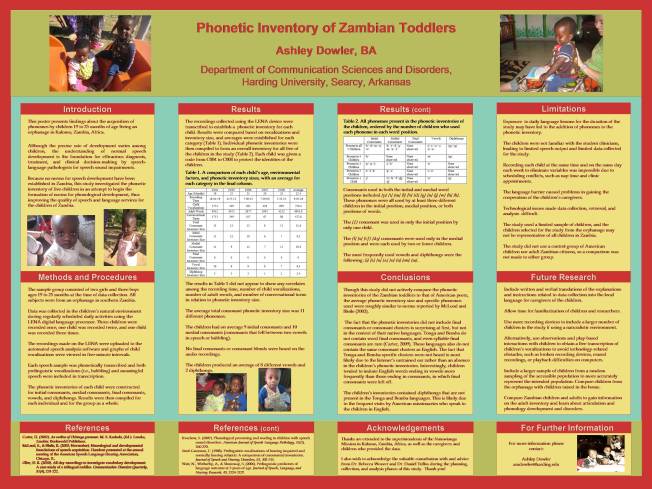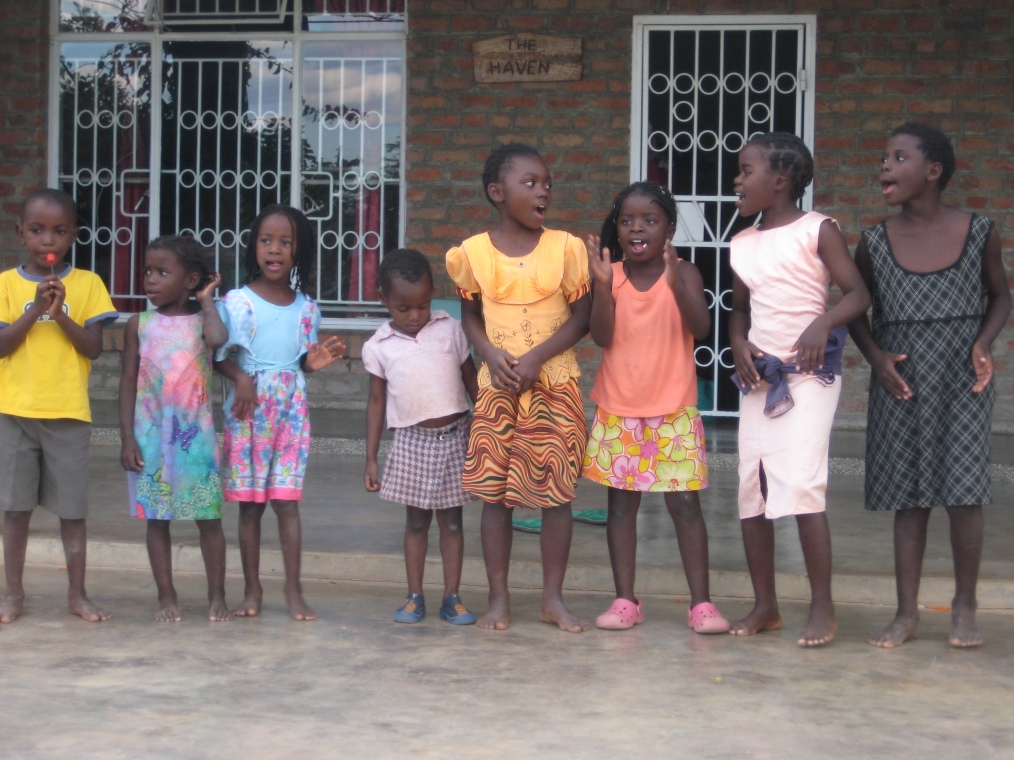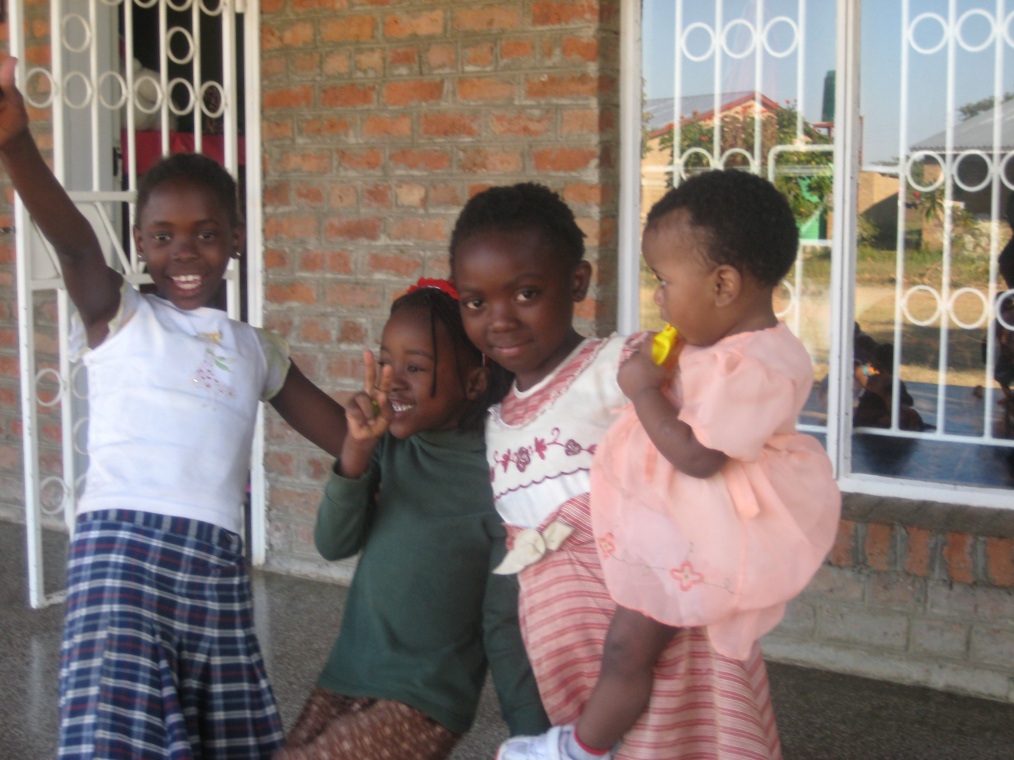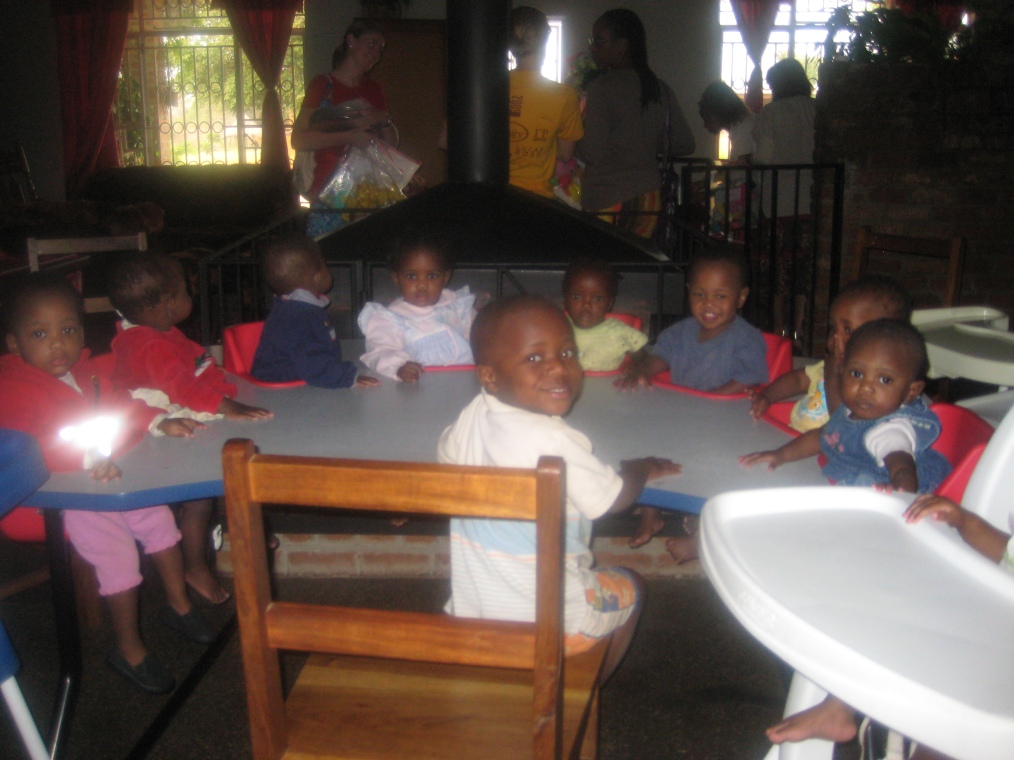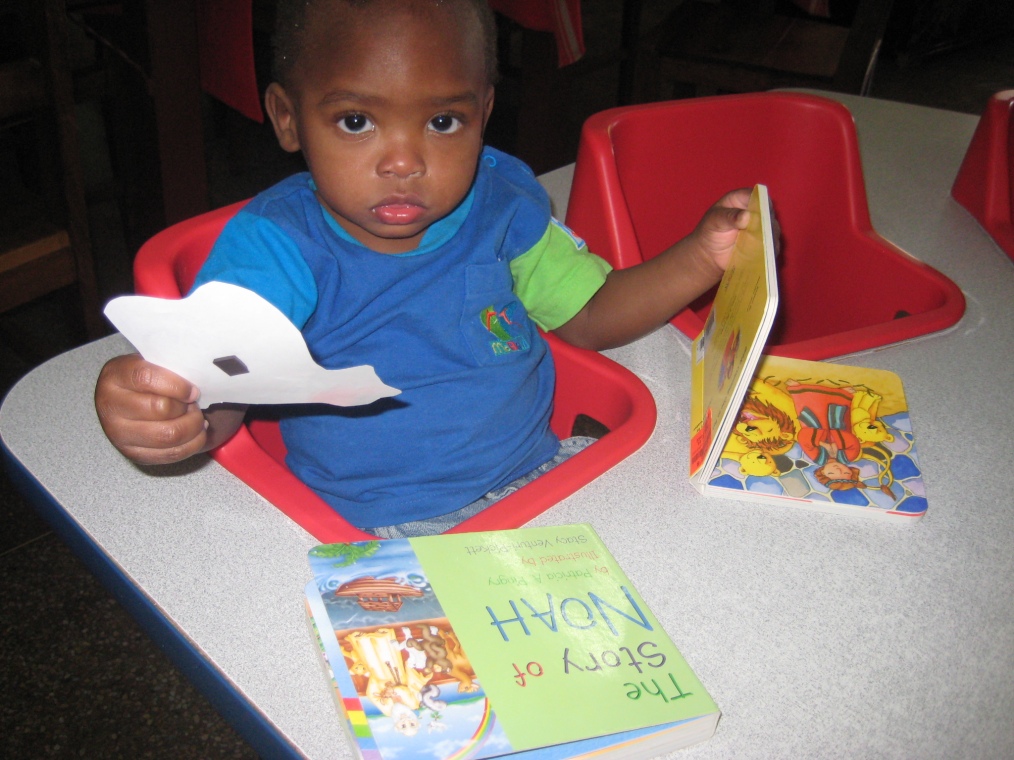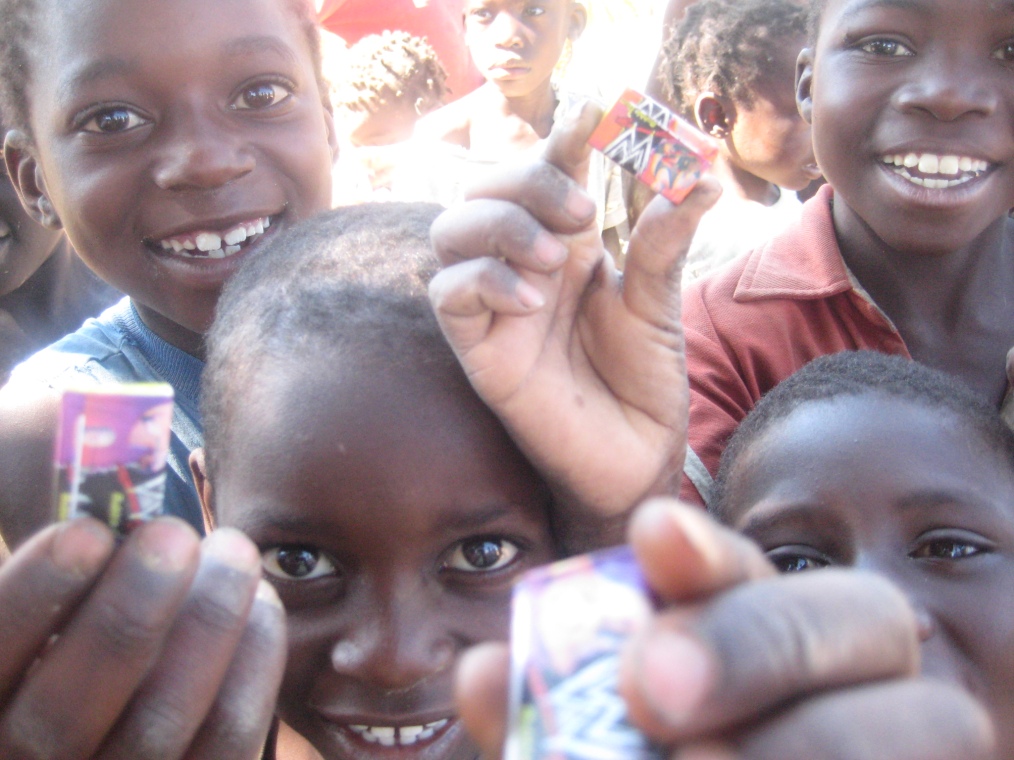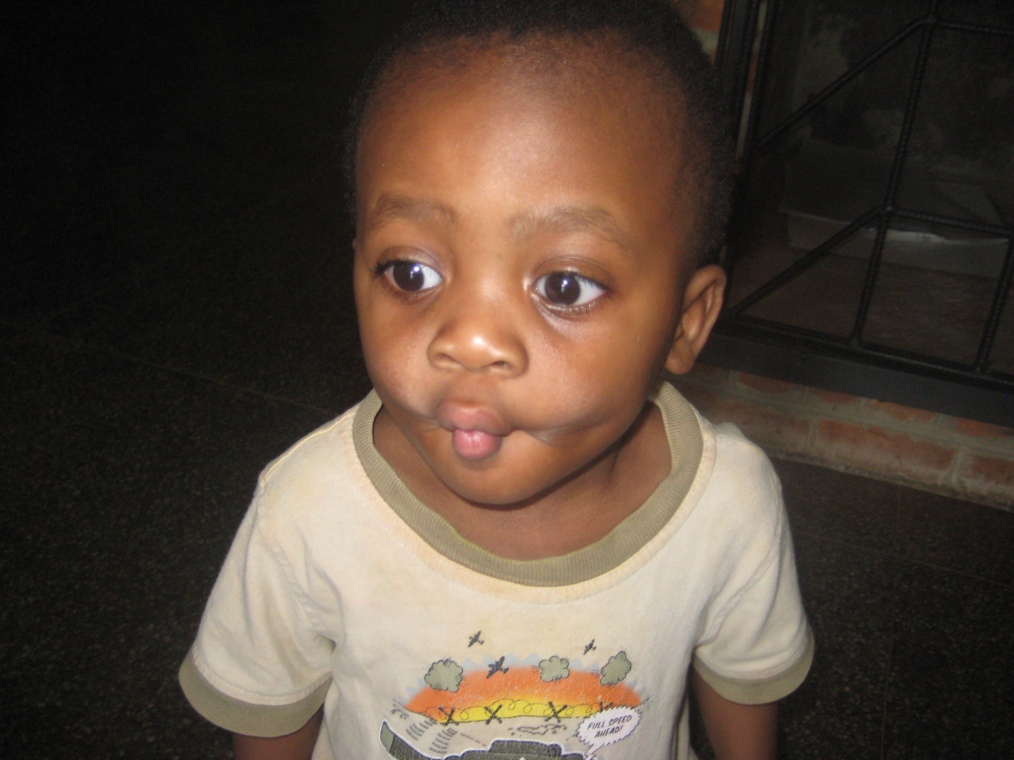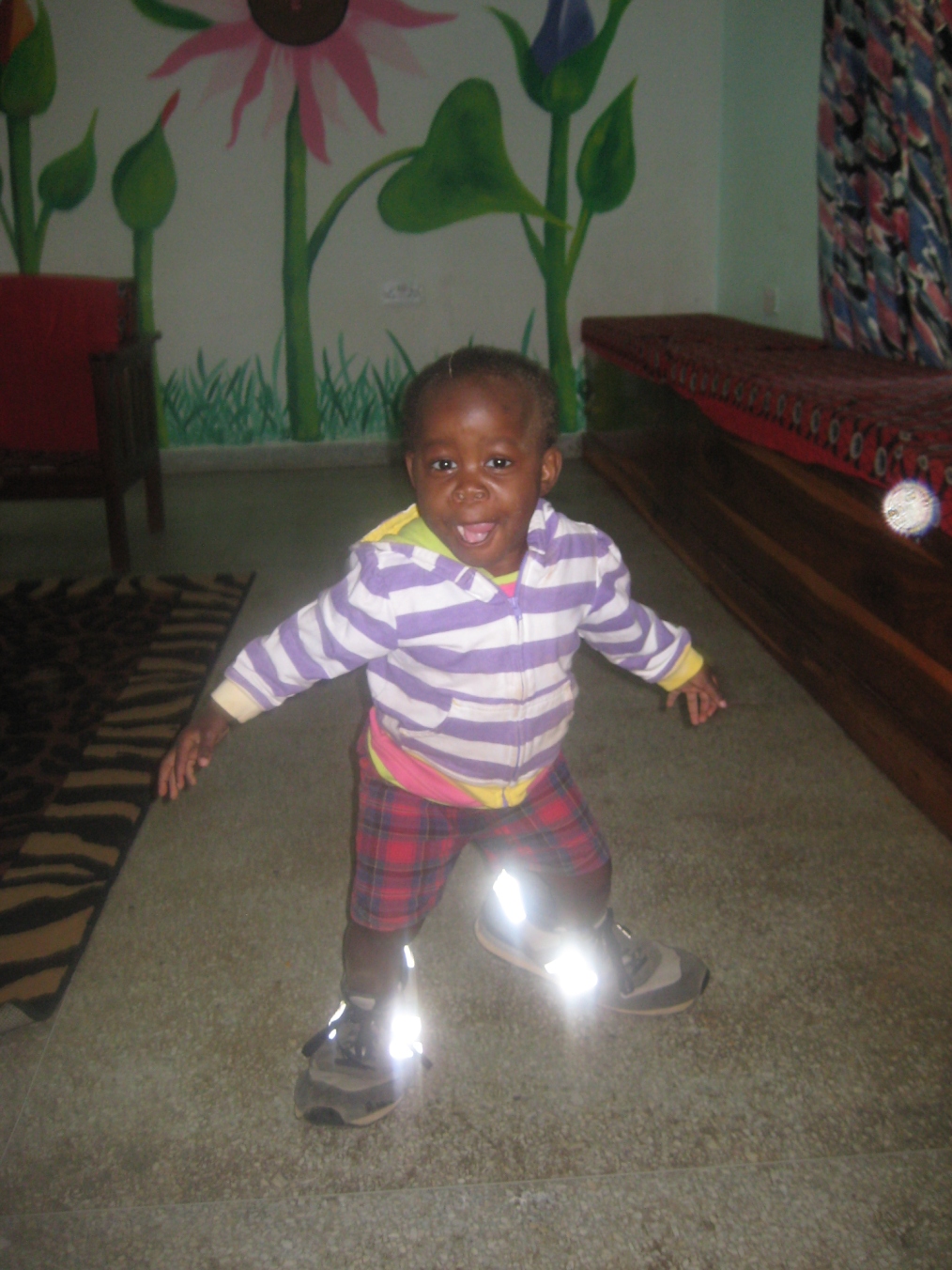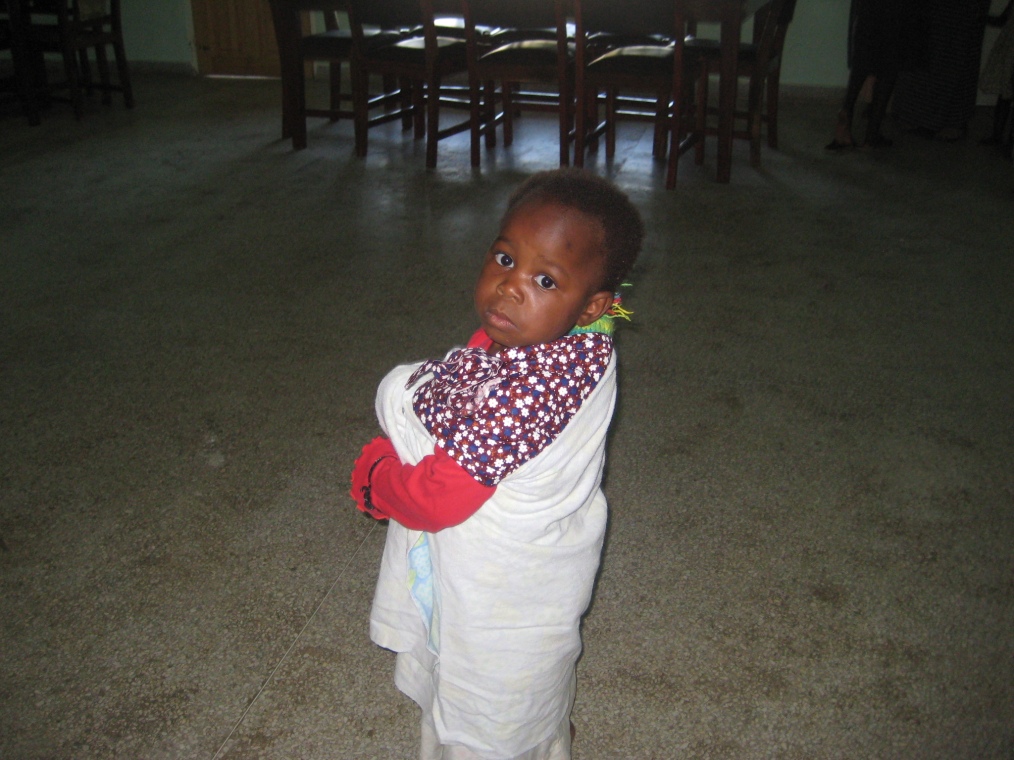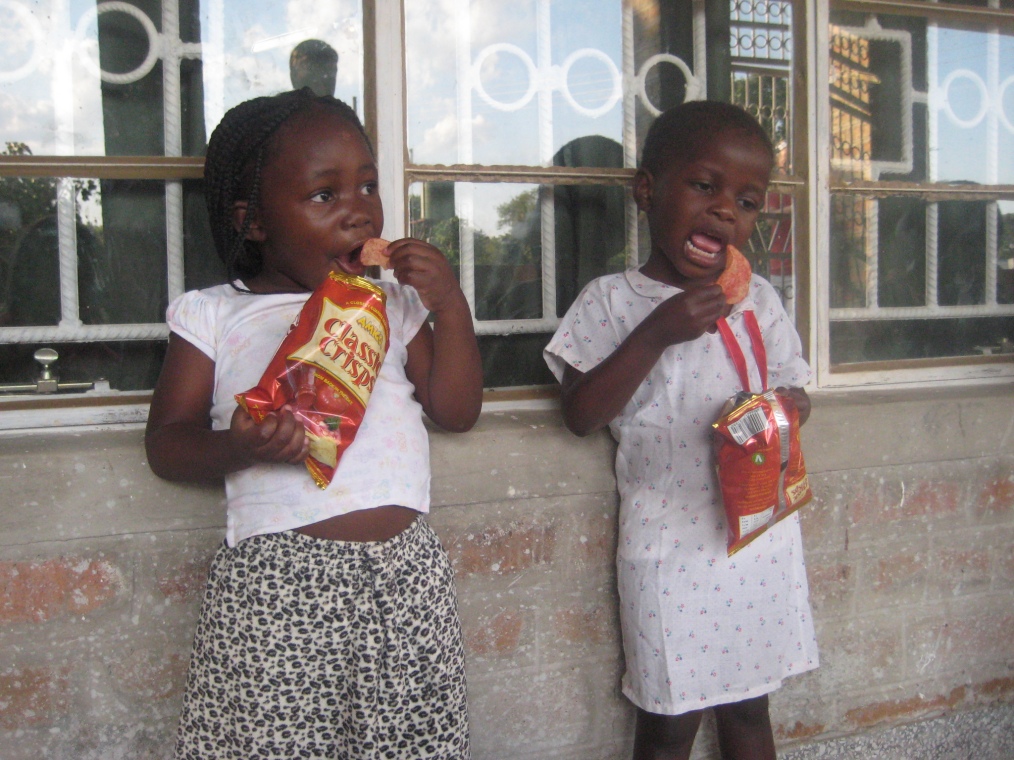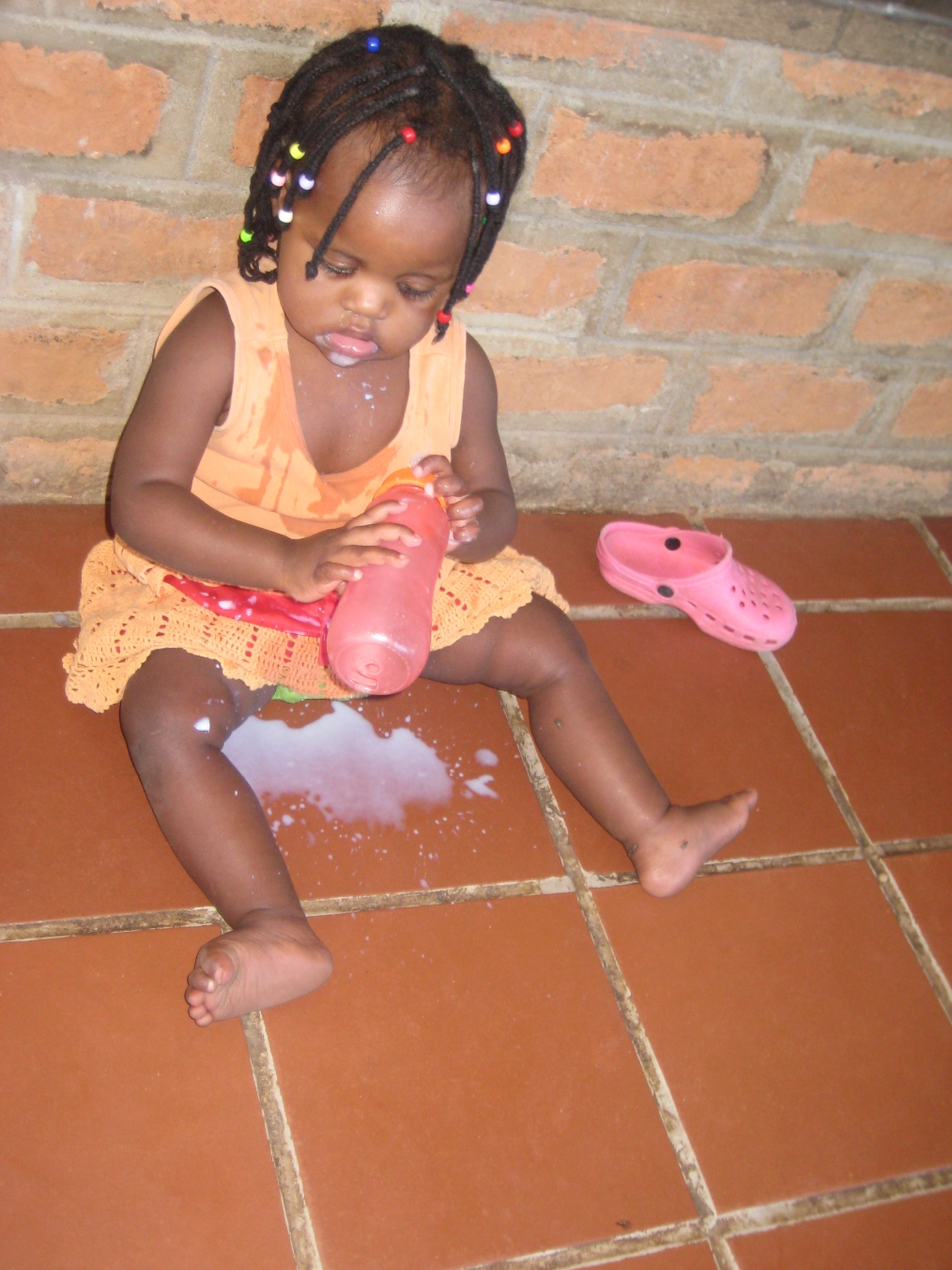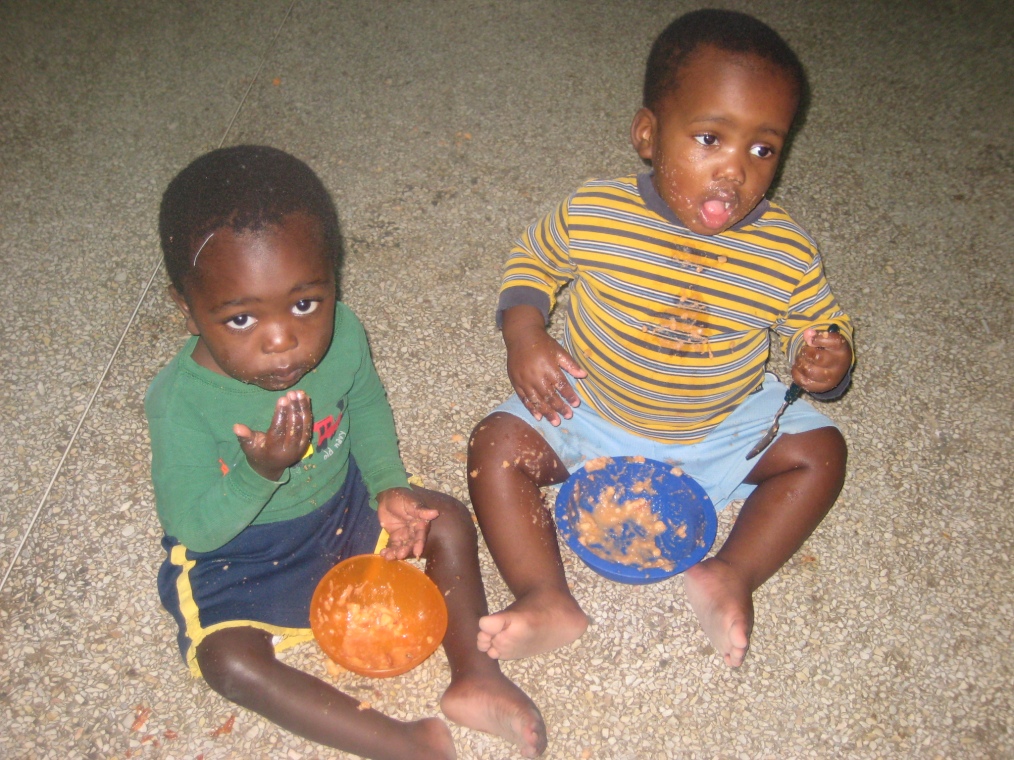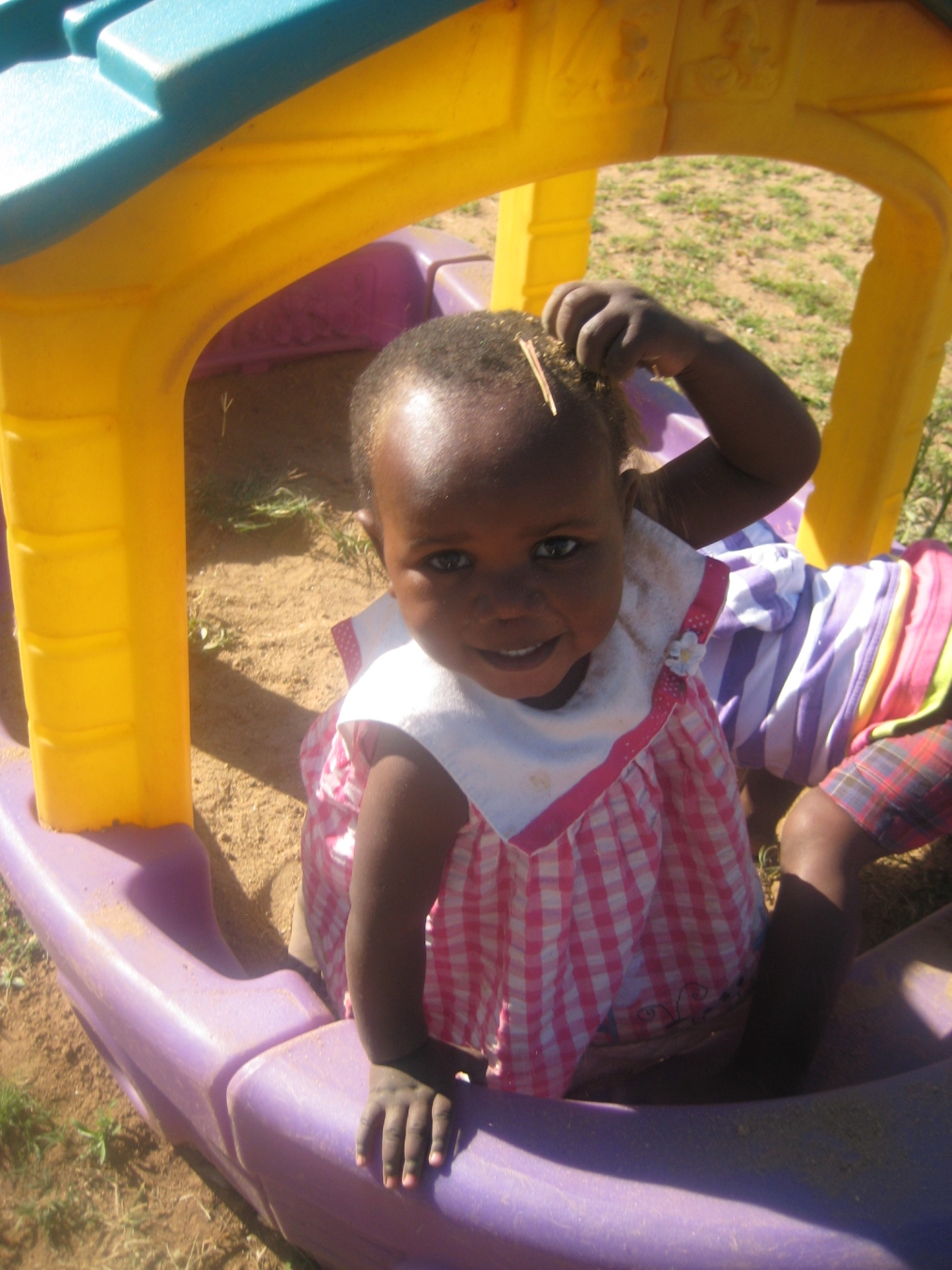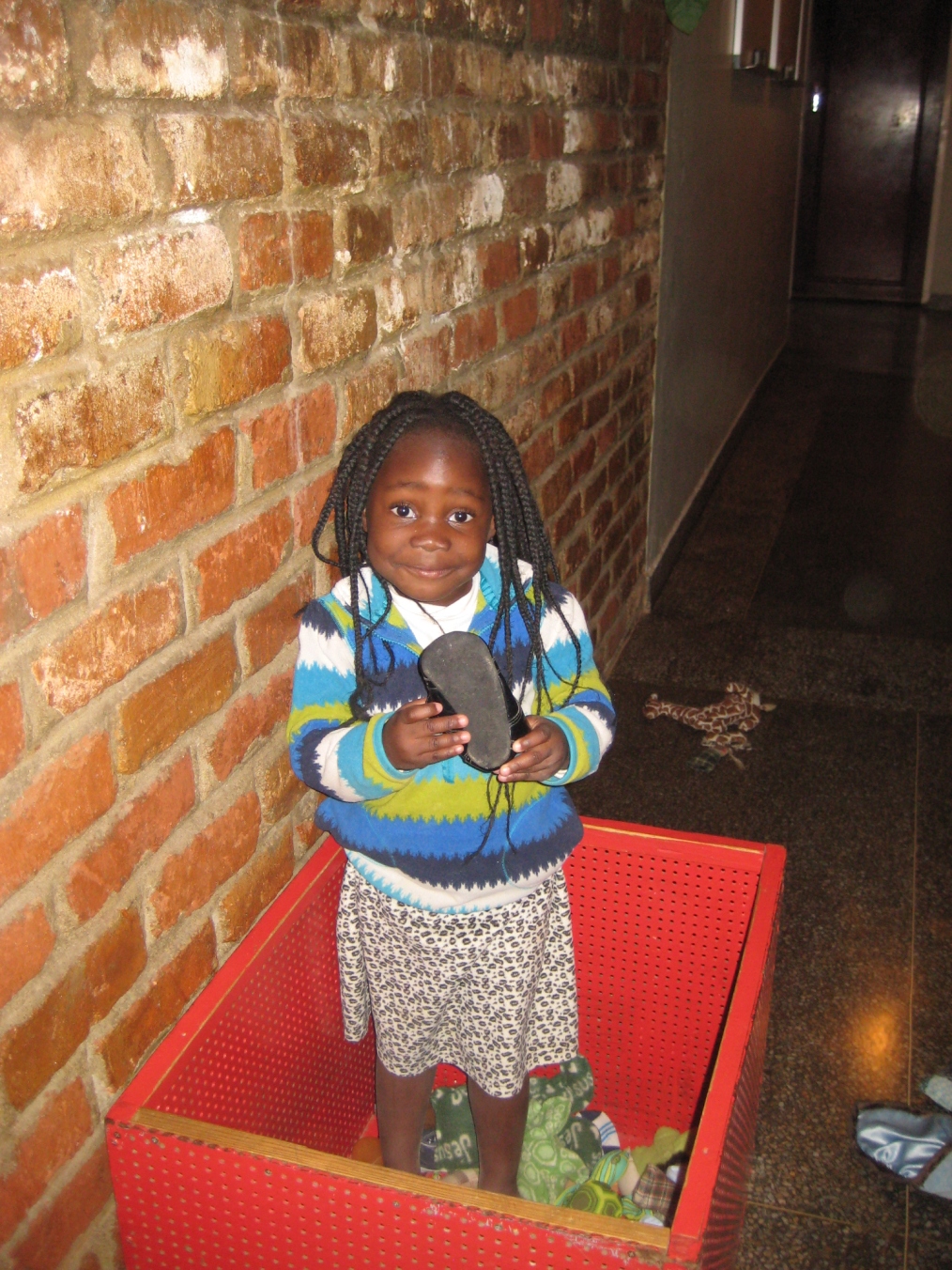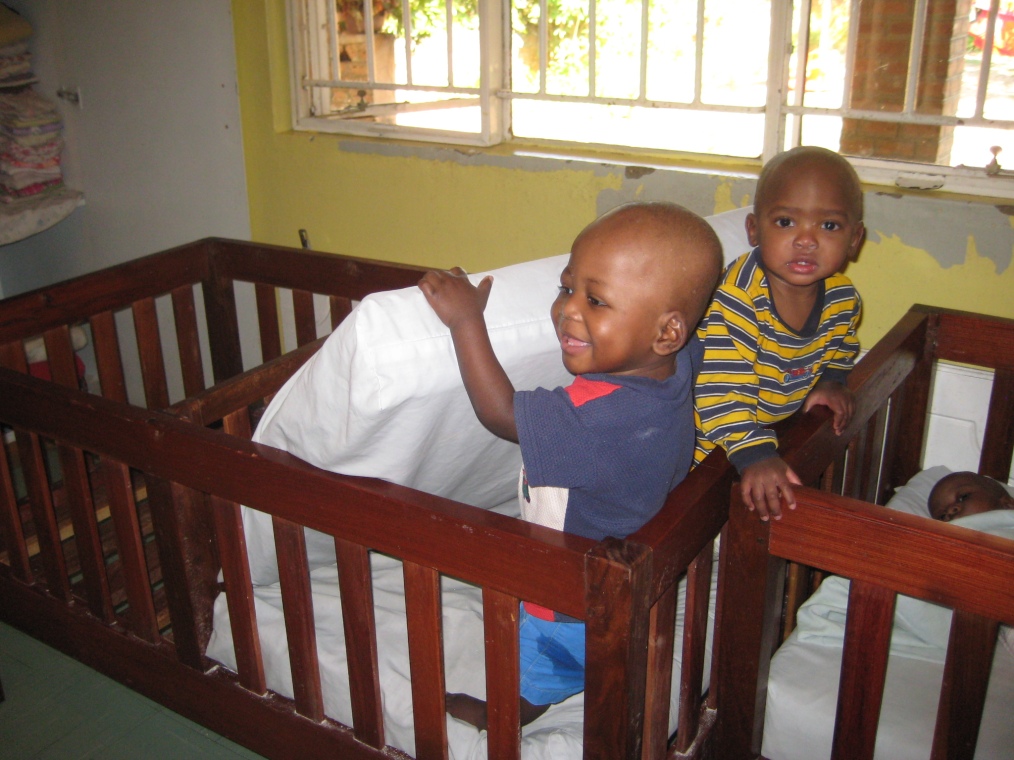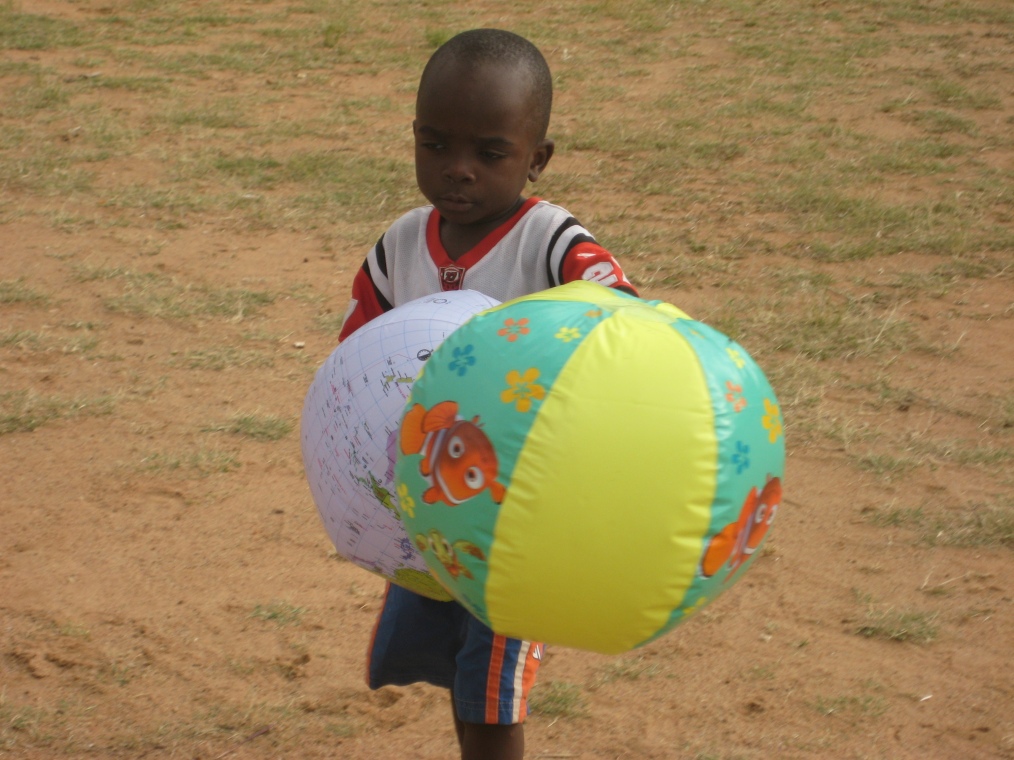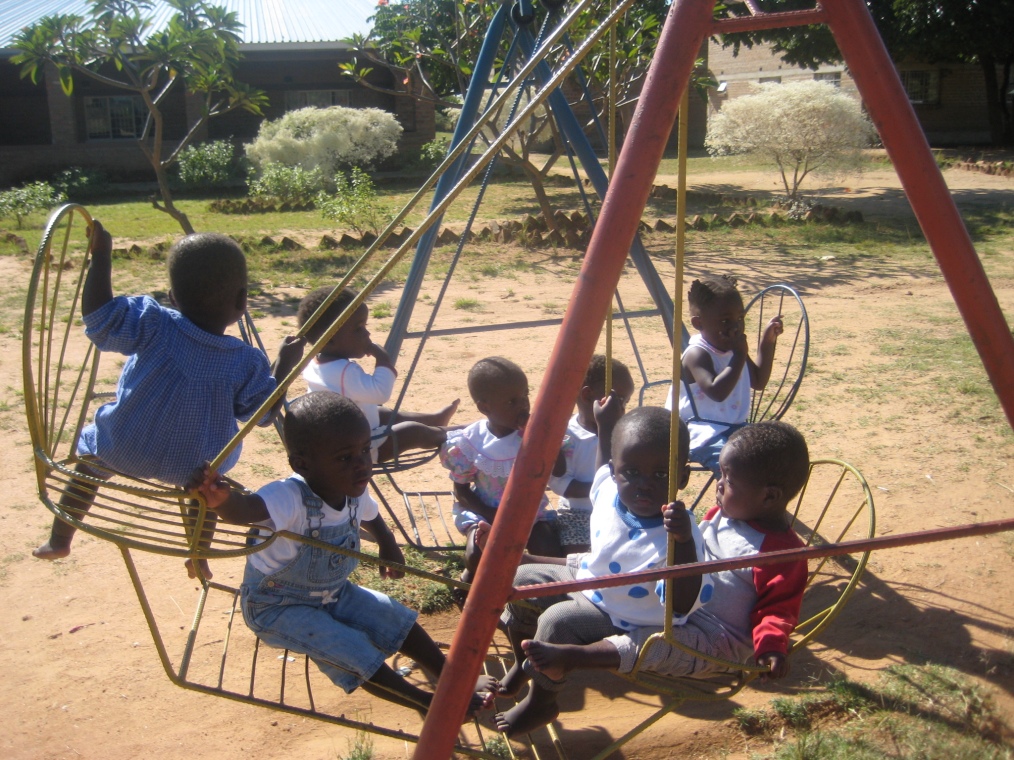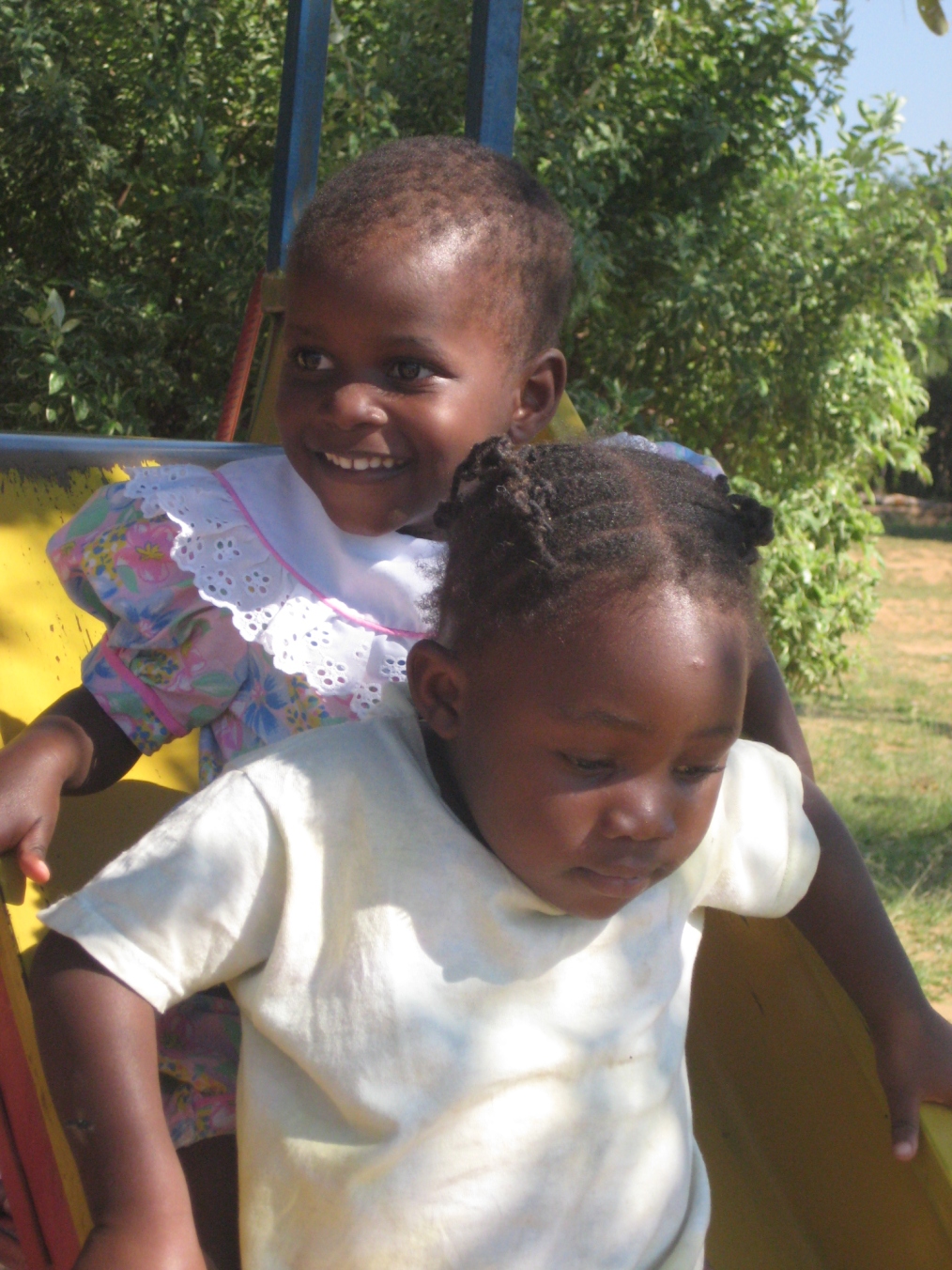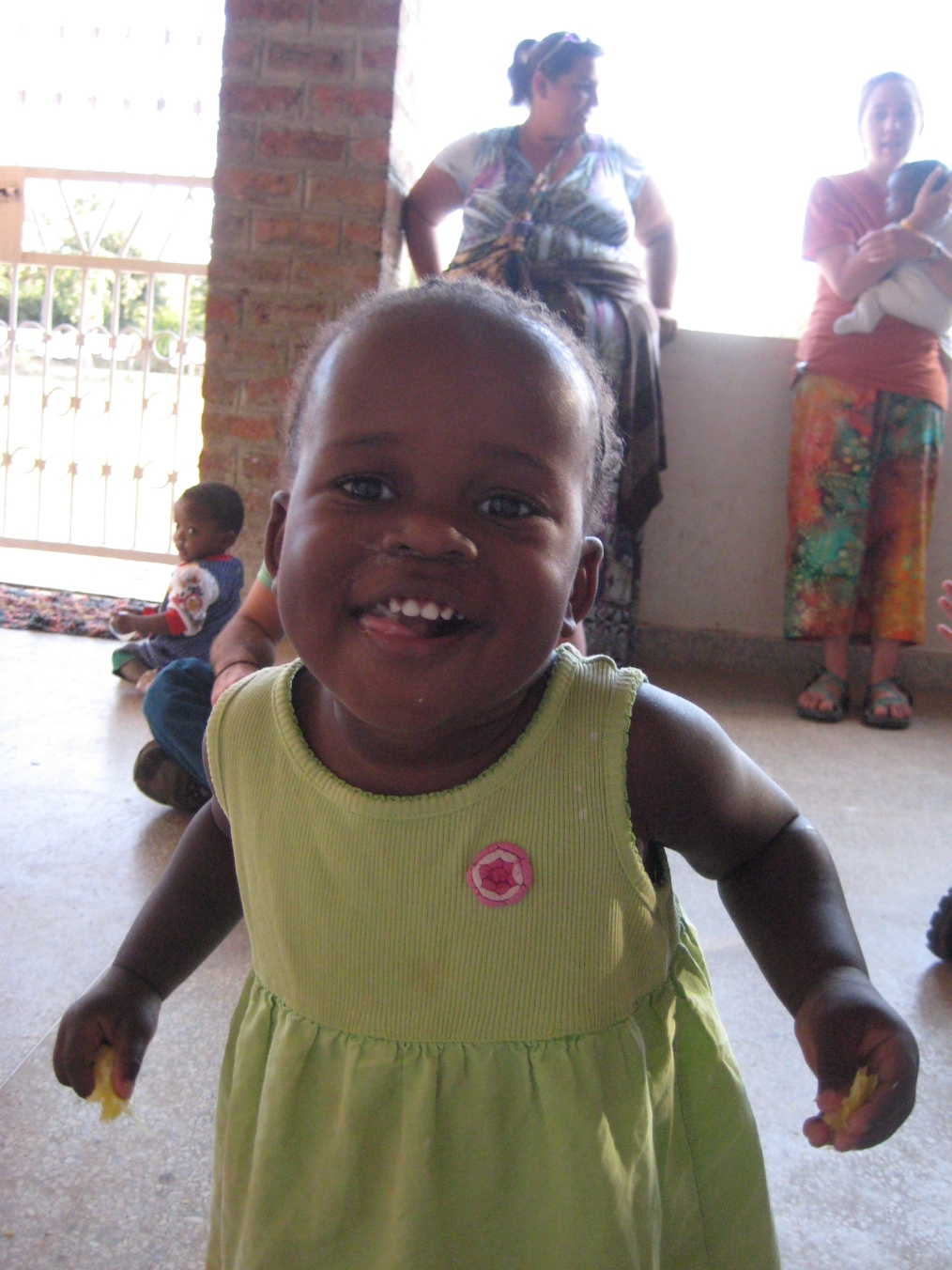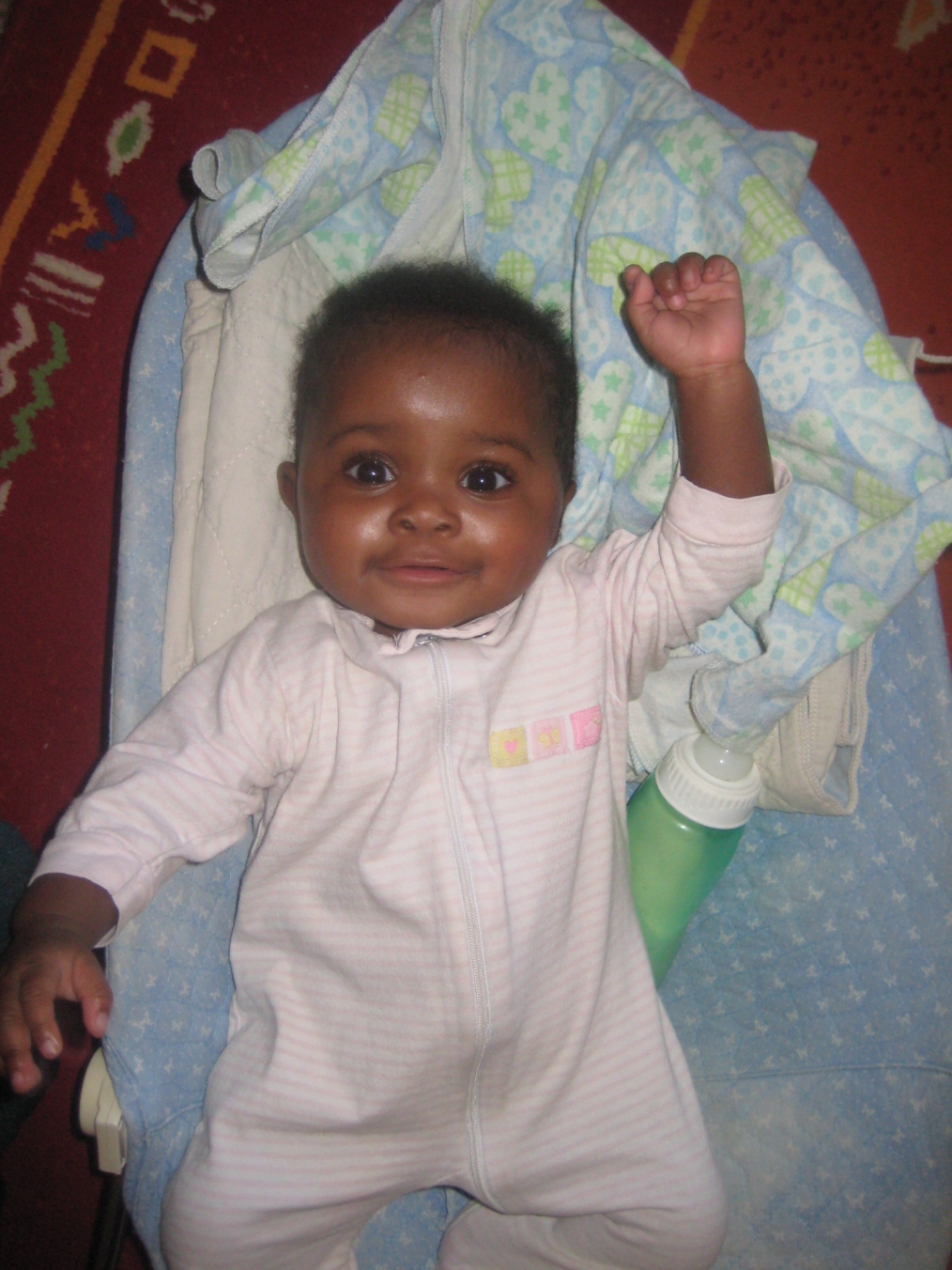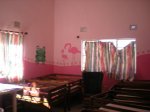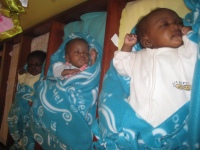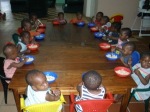Most of the group are in Livingstone right now watching the lunar rainbow (moon bow) atVictoria Fallsand will be back tomorrow afternoon. I saw the moon bow last year, so I am staying here at the mission compound and continuing to work with the babies. Since they are all gone, I have free access to the Internet so I am finally able to post. I am including posts that I typed before but was unable to post until now, so this will be long.
Stage Fright – May 27, 2012
I think it’s a universal rule that children usually refuse to perform on command. Whether you’re asking children to sing a cute new song for a friend or trying to get them to say a certain word in speech therapy (that you have heard them say outside the therapy room), kids are stubborn and seem to only perform on their own terms. The same is true for language therapy groups here inZambia. The children at the toddler house are divided into three groups based on age and developmental level for language stimulation and enrichment in the morning. We sing and read to the children during small groups. We use some action songs and finger play activities that are commonly used with children in the States, but we also have made an effort to learn the children’s songs they hear regularly. After small group, all the children sit together in a large group for “tea time” where they receive a mid-morning drink and a snack. We sing and talk to the children during this time as well, and try to use theTongawords and phrases we have learned when talking to them. Very few of the children participate in the singing and other group activities, but they are beginning to do better after working with us for a week. When I go to the toddler house alone or with only a couple other people, however, the children will independently sing the songs and even do the motions associated with certain songs. They may not know every word of every song, but they know the tunes and many of the words. They will often start a song and ask me to sing with them. I guess the children just don’t like to perform for large crowds, but it’s comforting to know that they are at least absorbing what they see and hear during our time with them.
Clinic Day – May 28, 2012
Ben, Miriam, Torrie, and I went with Kathi Merritt and two of the aunties to take seven of the infants from Haven 1 (the baby house) to the clinic to be tested for HIV and TB. We each took one baby and got in the truck. Babies don’t use car seats here so we held them while we drove. I held Christopher, one of the smallest babies, and sat in the back of the truck (it was covered) with the two aunties and their babies. The road to the clinic is a dirt road and very bumpy, to say the least, especially in the back of the truck. It was all I could do not to pass out on poor Christopher. Luckily it only takes a few minutes to drive from the Haven to the clinic.
The clinic is a rectangular concrete building with an open space containing grass and trees in the middle, and small rooms along the outside. We walked past the lines of people waiting for medical care and entered a small room with a bench along the two walls and a curtain that cut the room in half, hiding a long table on one wall and a bed along the other. The walls were lined with information about HIV treatment for infants – when to treat, specific medications to use, what dosage to administer. We held our bundled babies on the benches for about 45 minutes as we waited for the nurse to finish working with other patients. Finally, she arrived and we each took our baby behind the curtain in turn and took another baby back to the waiting area after leaving our baby with Kathi and the nurse. Kathi reviewed information about each child before the nurse drew blood from the child’s foot for the testing. Each child screamed for a few minutes, of course, but quickly settled and went to sleep after returning to the waiting area. Once all the babies were finished, we drove back to the Haven, and I made sure to sit in the cab of the truck that time. I still haven’t heard the results for the babies, but whatever the result, these babies are cared for very well and I’m sure they will be okay.
Sick Day – May 31, 2012
I guess getting sick is to be expected when living in ruralZambia. A stomach bug went through the group last week but I thought I had successfully avoided it. Until about 3 am on Wednesday. I felt fine on Tuesday, other feeling cold and achy on Tuesday night, but I thought I just didn’t have enough layers on because it gets pretty cold here at night. Then, I woke up at 3 and the diarrhea, fever, cold sweats, and aches started. I spent much of the night on the cold concrete floor of the bathroom because the cold felt good on my head and I just couldn’t bring myself to move. I returned to my room to sleep a few times but always ended up back in the bathroom. I finally started to feel a little better by8 am, but not well enough to eat or leave the house. I slept most of the day, until about2:30 pm on Wednesday. The aches were bad enough that I wore a t-shirt, long-sleeved shirt, and sweatshirt on top and layered tights and fleece sweatpants on the bottom and was still cold burrowed in my bed covers, even with the 80-degree weather outside and no air-conditioning. After I woke up, I stayed in bed and finished reading a book. I finally felt well enough to eat some crackers and start removing a few layers by about 5. I was sad I had to miss a whole day with the babies, but there was just no way I could have left the house, and I didn’t want to risk spreading the bug to even more people. I’m just glad this was only a 24-hour bug and not something worse. Many people now have colds and conjunctivitis. Please continue to pray for us to have good health while we are here so we can enjoy our time here and spend as much time with those sweet babies as possible.
Lydia – June 2, 2012
Lydiawas a tiny newborn baby when I first visitedZambiain 2009 and quickly became one of my favorite children at the Havens. She returned home before my second visit in 2011, but I have periodically received pictures of her from people living here who went to see her at home.
Today, as I was sitting by the front door of Haven 3 playing with little Ruth, one of my other favorites, the door opened and two women walked in holding a young girl. I looked up and immediately recognizedLydia, but thought I must be mistaken until I heard one of the women address her by name. I couldn’t contain my excitement anymore, so pointed to the little girl and said her name. I tried to communicate to her family members that I knew her when she was younger and that I loved her very much, but I know very littleTonga, so one of the aunties translated for me.Lydiawas extremely small when she arrived at the Haven. She was malnourished and sick, and had to spend some time in a larger hospital a few hours away to get well. Today, her family members are proud to show off a happy, healthy 3-year-old girl, a success story that is a tribute to the many great things the caregivers here at Namwianga do each day for these precious children. I had the surprise of my life when she walked through the door, and I have never felt happier than I did today.
Christopher – June 3, 2012
Christopher is one of our smallest babies, and one of my favorites. He’s two months old and weighs about 5 pounds. He’s been sick with diarrhea and has been spitting up a lot of what he eats. This week he had a virus and didn’t want to be put down in his bed, so I held him a lot of the time. He needs the extra holding time anyway so he can grow. I have daily “chit-chats” with Christopher about how it is time to start growing and getting healthy, and he is very attentive when I talk to him. During our talk yesterday, I asked him if I was spoiling him too much, and he looked straight into my eyes and said “ah”, so I took that as a yes, but I’ll continue to spoil him until I leave. I was excited yesterday, though, because he watched my face when I spoke to him and held eye contact for a long time. He even started vocalizing some vowel-like sounds (like “ooh” and “ah”) while I talked to him and was very alert. Meeting those developmental milestones is a good sign that maybe things are looking up for this sweet baby boy.
His feeding skills have needed quite a bit of work. The first day we were here, he had a poor lip seal on the bottle, had trouble getting his tongue coordinated to properly suck on the bottle, and frequently gagged and pushed the bottle out of his mouth. We first worked with the aunties to make sure the nipple on his bottle was small enough for his tiny mouth. Then, the feeding therapy group did stretches and exercises to prepare his tongue and facial muscles for feeding so he would have better coordination and could keep the bottle in his mouth for longer periods of time. I’m happy to report that after only two weeks, he is doing much better. He still has trouble getting his tongue in the right place at first, but we’ve found that placing the bottle in the center of his mouth and pushing down helps him start the feeding process. Having better coordination means he doesn’t have to work as hard to eat, so he keeps the bottle in his mouth longer, fatigues less, and eats more of each bottle. His face is starting to fill out more, so he looks less malnourished. Now we need to work on reducing the amount he spits up and increasing the amount that stays in his tummy. I have high hopes for Christopher and I believe he will grow up to be a smart, healthy boy if he can just get through these initial health struggles.
I will try to write more soon about the feeding issues we see here and the difficulties we face in assessing and treating these problems in our children.
Asking for Books – June 4, 2012
Many times, elementary-age students will walk up to us and say, “we are asking for sweets.” It is rare for these children to receive candy, so it is a great treat when people bring them something sweet to eat. This year, however, I have had just as many requests for books as I have for sweets. The children here want to read. I brought a suitcase full of cloth books for the young children at the Haven, but none for young school children. When I was working at the toddler house yesterday, about 10 elementary-age children came to play with me, as well. I gave them a notebook and some crayons so they could draw, and several of the children asked me to help them learn to write. I wish I could have spent more time helping them, but I also had 30 toddlers to care for (basically by myself), so my hands were very full. As I was leaving, two of the girls, wearing old dresses full of holes, asked if they could keep one of the cloth books to read. It was a very simple book with animals and their names stitched into the “pages”, and, as much as we love to use those books with the babies, there are many books left here, so I allowed the two sisters to take the book home with them. They were very excited to have something to read. Having been to the local basic school before (grades 1-8), I can tell you that the library is nothing to write home about. It had old textbooks on shelves and in boxes covered with dust and spider webs. These children do not often get to read for pleasure. I would like to change that the next time I come, and would love to be able to bring or send books for the children to read.
